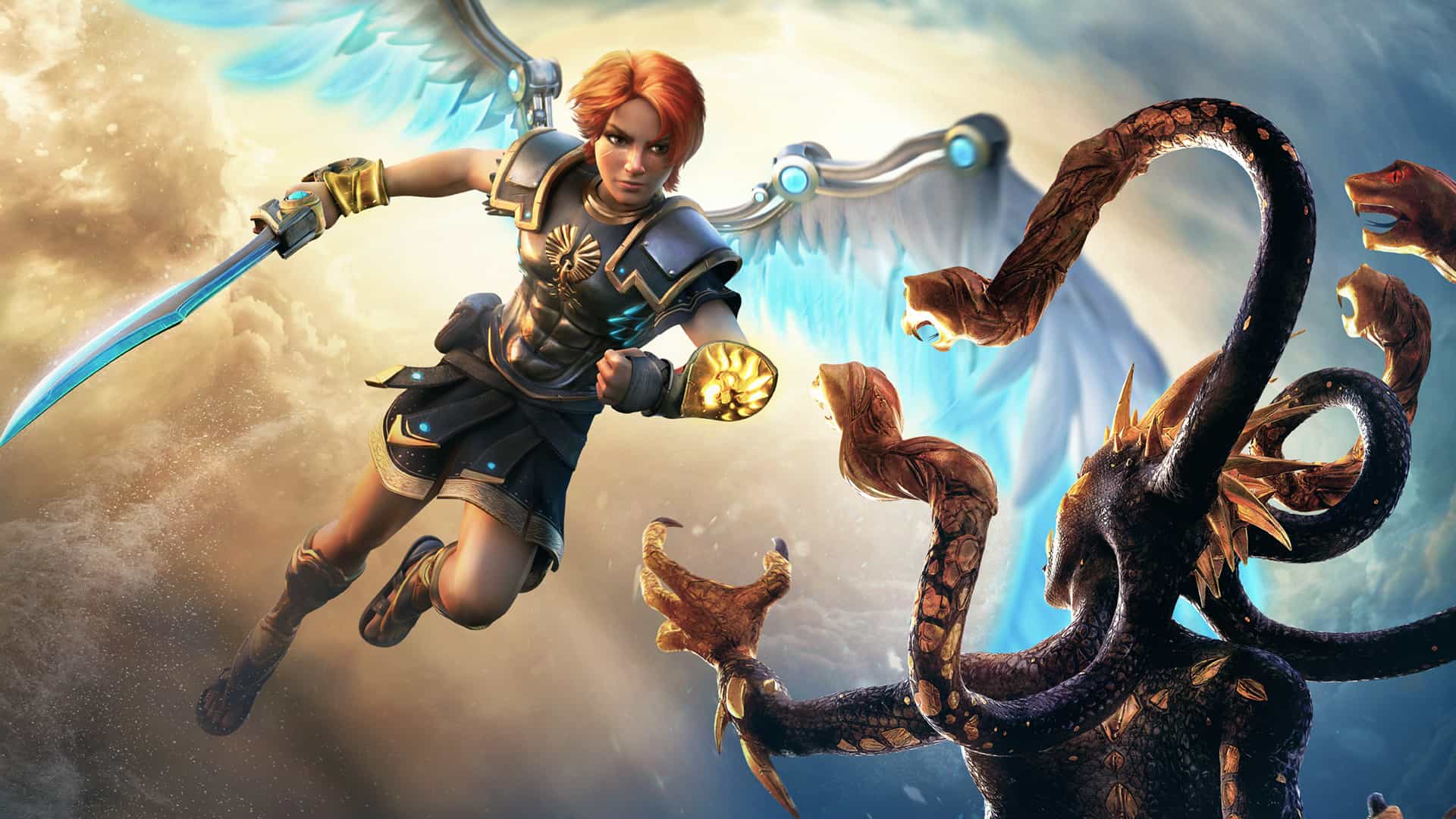
What is it? An open world game based on Greek mythology.
Expect to pay £50/$60
Developer Ubisoft Quebec
Publisher Ubisoft
Reviewed on RTX 2080 Super, Intel i7-9700K, 16GB RAM
Multiplayer None
Link Official site
When Zeus banished the evil titan Typhon to Tartaros, an infinite abyss of torture and suffering, he thought that would be the end of it. But Typhon has escaped, stripping the gods who imprisoned him of their powers and wreaking havoc on their home, the Golden Isle. And so it falls to Fenyx, a lowly Greek soldier, to save them. Why? Because it’s a good story. Fenyx is a normal person suddenly thrust into an outrageous world of gods and monsters. This grounds things nicely and makes for an enjoyable, and extreme, fish out of water story.
Immortals tells a big story with big stakes, but it’s no Greek tragedy. It’s a comedy, taking well-worn elements of Greek mythology and giving them a light-hearted, self-aware spin. The dialogue pokes fun at the legends, repaints familiar characters in amusing ways, and throws in anachronistic pop culture references. It’s charming and often funny, if occasionally a little grating. Prometheus narrates as you play, with a goofy Zeus rudely butting in to mock his storytelling ability, brag about himself, or demand he make things more exciting. This frequently results in things changing around Fenyx, like a cyclops suddenly doubling in size.
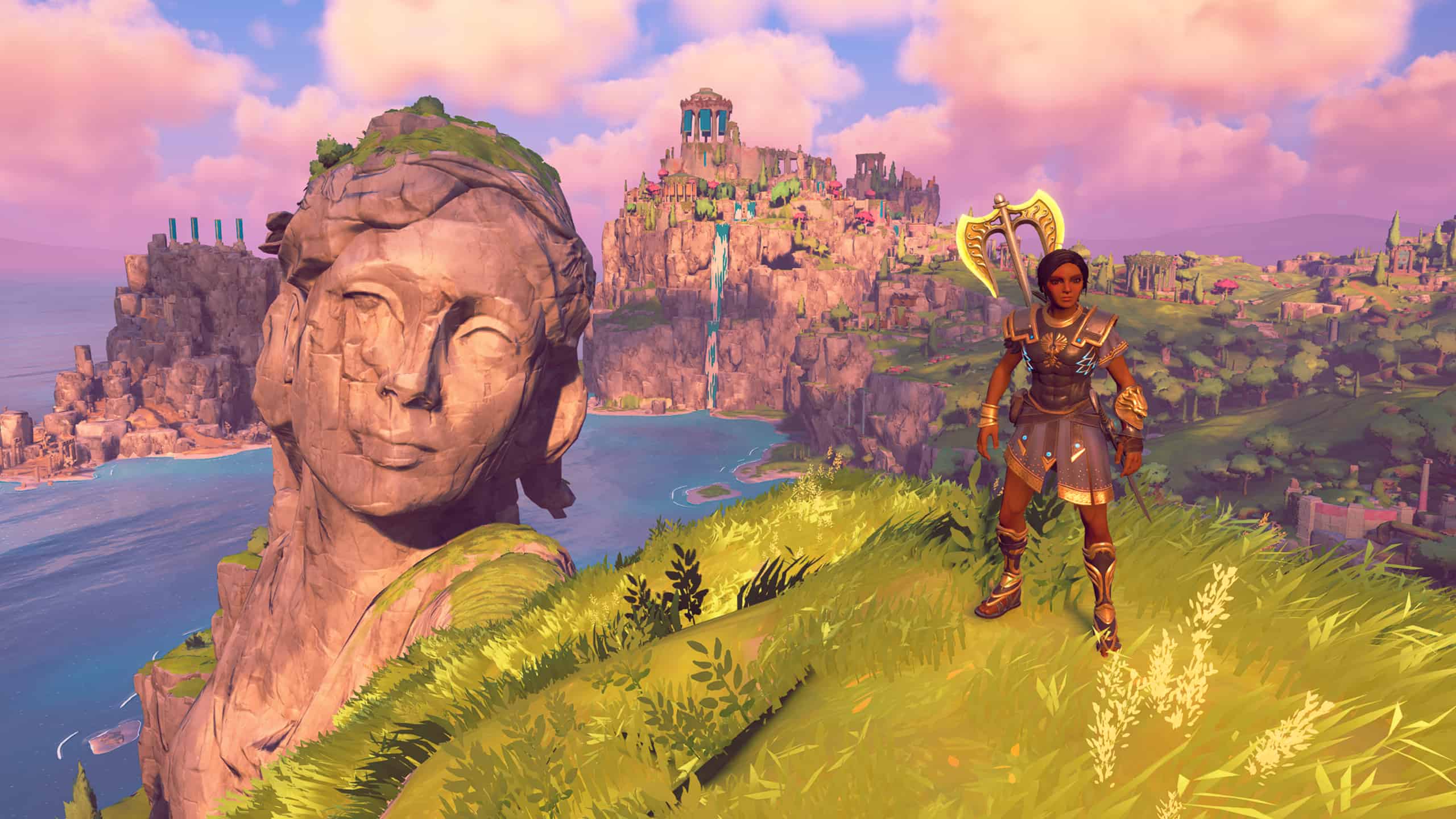
The mythical Golden Isle is a vivid, beautifully realised setting, with each region reflecting the god who lives there. Love goddess Aphrodite’s corner of the island, the Valley of Eternal Spring, is an idyllic paradise of sparkling rivers, gleaming temples, frolicing animals, and colourful flora. The Forgelands, home to metalworking god Hephaestus, is a mountainous, autumnal landscape littered with crumbling ruins, workshops, and rusted automata. And at the heart of the island is the Gates of Tartaros, a lava-spewing volcanic fissure where, once you’ve rescued all four gods, you’ll confront Typhon for a final showdown.
This is one of Ubisoft’s prettiest open worlds, and a nice alternative to the subdued realism of Assassin’s Creed Valhalla. It’s bright and striking, like a Saturday morning cartoon, and the swaying grass and petals blowing in the wind have a real Studio Ghibli feel. Climb to the top of one of the many colossal statues on the island and the sense of scale is impressive. The breezy art style is a perfect fit for the game’s light-hearted tone, and there’s something really inviting about the world. You just want to dive in and explore every inch of it.
This is one of Ubisoft’s prettiest open worlds
There are a few ways to get around the Golden Isle, all governed by a stamina system. You can climb on pretty much any surface for as long as your stamina meter holds out. If it gets dangerously low, drinking a potion will let you keep going a little while longer. You can creep up on animals—including a blue unicorn and a horse made of solid gold—and tame them, turning them into mounts. They have their own stamina meter, which varies in size from beast to beast. And when you discover the wings of Icarus early in the game, you can glide for long distances—again, for as long as you have stamina left.
But my biggest problem with Immortals is that none of these modes of navigation feel particularly good. The jumping is some of the worst I’ve experienced in a third-person game. It’s frustratingly floaty and imprecise, making leaping between small platforms a chore. Gliding with the wings doesn’t feel as graceful and smooth as it should. And when you gallop on a mount, the screen is smeared with way too much motion blur and you feel like you have to fight the controls to take a turn. It just never felt nice in my hands.
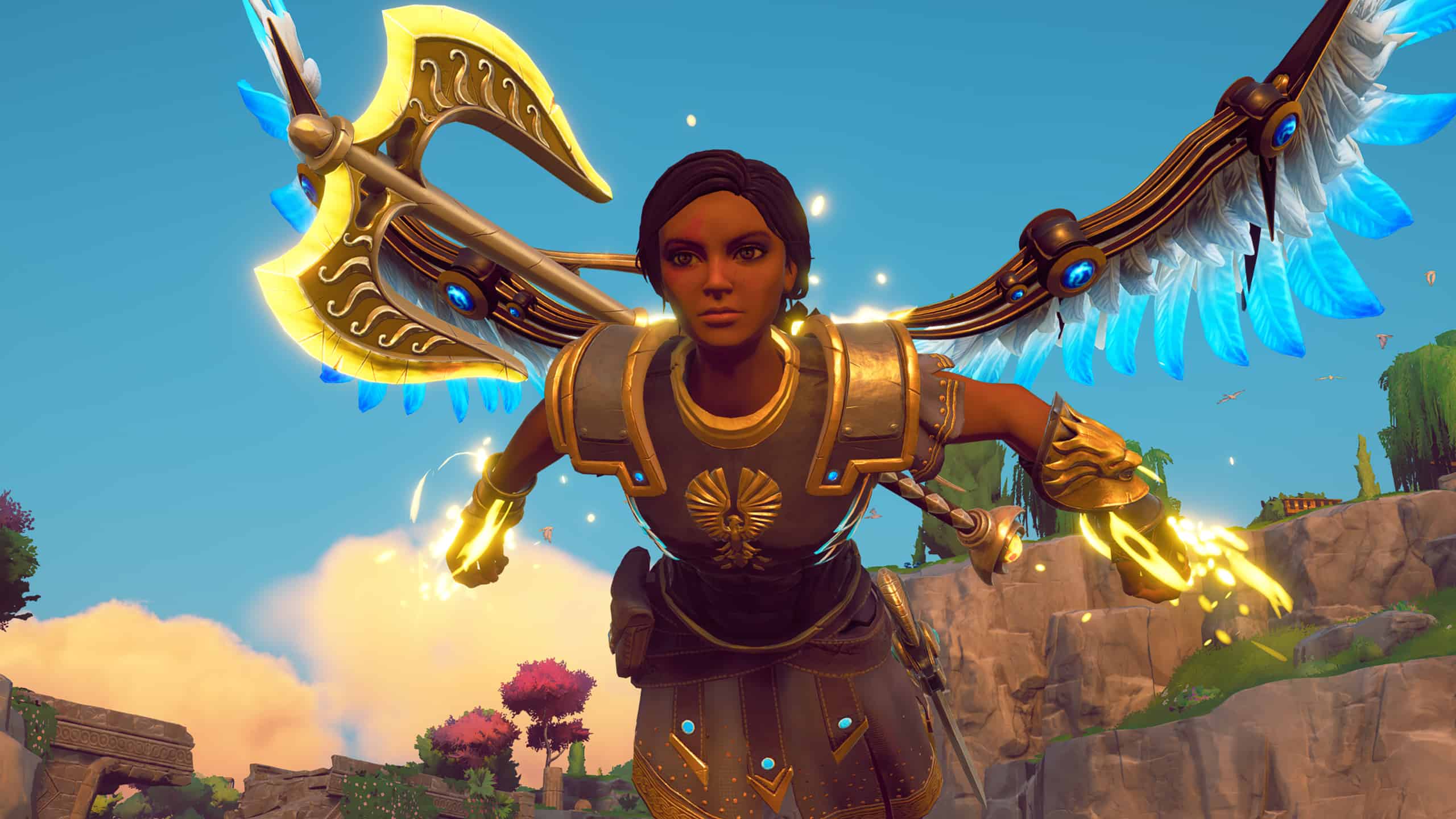
While we’re on the subject of things I don’t like, there are way too many collectables. As you sprint around the Golden Isle you’re constantly picking things up, including Ambrosia, Zeus’s Lightning, Coins of Charon, Golden Amber, blue, yellow, red, and purple Adamantine, flower nectar, Olympian figs, blue mushrooms, and pomegranates. There are also four kinds of potion to craft, several large skill trees to work through, and an avalanche of loot, including weapons, armour, and skins for Phosphor, your bird companion. It’s an overwhelming amount of stuff, and feels like a step backwards for Ubisoft in terms of elegant open world design.
All of these objects serve a purpose, at least. Zeus’s lightning increases your stamina, which is something worth investing in as it lets you run, glide, and climb for longer. Figs, mushrooms, nectar, and pomegranates, which you find scattered around the world, can be brewed into potions that grant you handy buffs, including increasing your defence and boosting your attacks. If you need a particular item, you can climb up somewhere high and enable farsight, a mode that lets you scan the horizon and tag things, which then appear on your map. The downside of this is that it doesn’t take long for your map to become comically loaded with icons as you tag stuff.
Immortals is at its best when you’re pursuing the story, getting tangled up in the neuroses of the fallen gods. It’s a nice touch that almost every deity and mythical figure you meet is troubled, eccentric, or just plain weird. This is a very human pantheon of gods, and the writers really have fun with them. However, many of the jokes will land harder if you have any knowledge of the mythology it’s based on, which does limit its appeal a little.
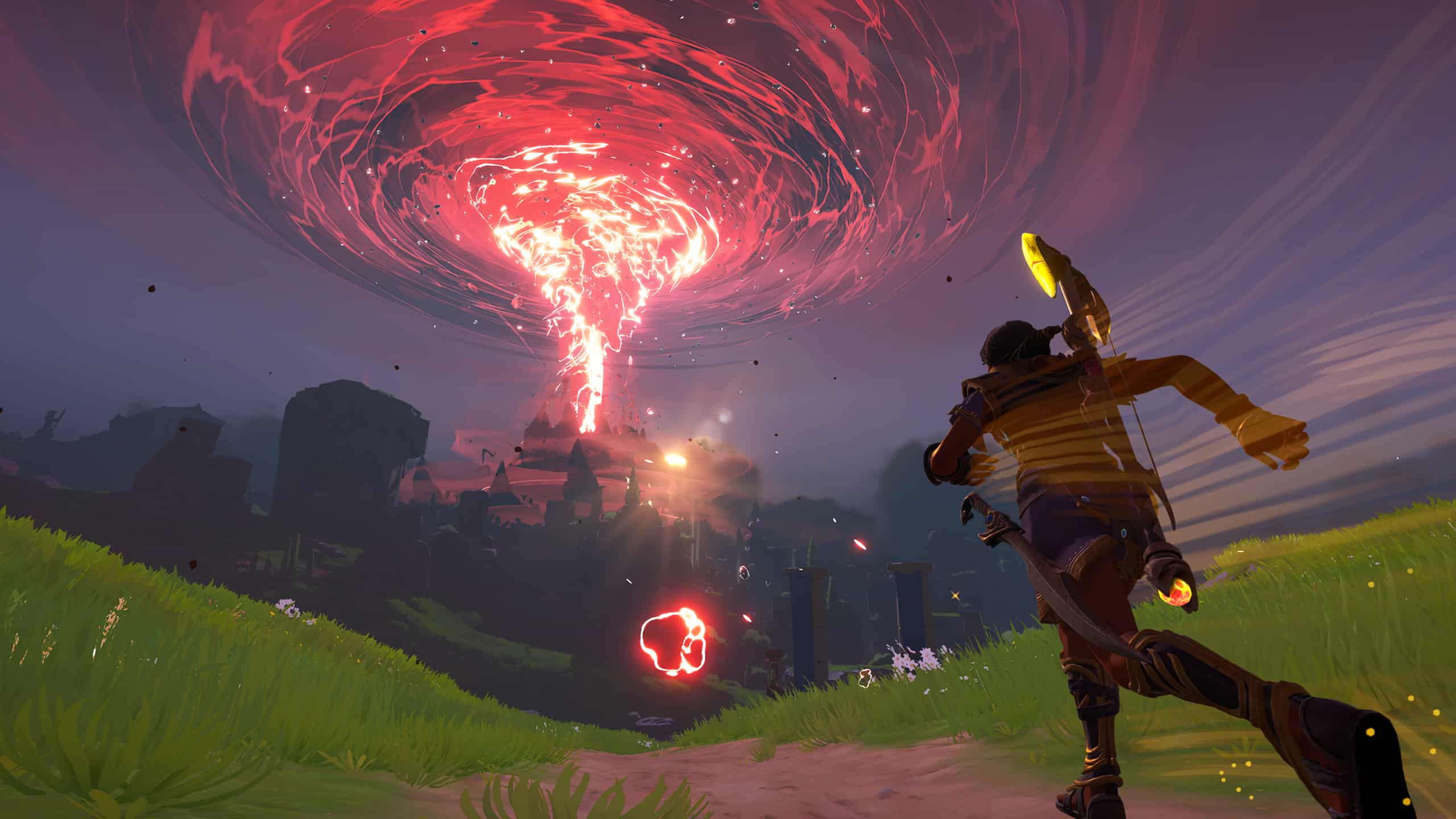
There’s a good variety of quests in the game, a lot of which are heavily skewed towards solving puzzles. I was actually surprised by how much of a puzzle game Immortals is. Sprinkled across the map are self-contained challenges called Vaults of Tartaros, which appear as volcanic openings in the ground and contain elaborate physics and environmental puzzles. Some of them are brilliantly designed, some are forgettable, but they hit more than they miss. Several important story moments also involve puzzles, including big, intricate dungeons at the end of each god’s quest chain. Also, props to Ubisoft for the broad range of accessibility options on offer, which extends to making puzzles easier if you don’t especially enjoy them. Ubisoft is getting really good at this.
Many of the game’s puzzles involve the Bracers of Herakles, which let Fenyx grab and throw heavy objects. Dropping boxes on pressure plates is a common occurrence, as is firing arrows through braziers to set things on fire and rolling giant balls around. The puzzles draw from a relatively shallow pool of interactions, but they combine, remix, and reappropriate them in some pretty clever ways. Vaults are made up of multiple sections, linked by checkpoints, and the game is particularly good at escalating the challenge. The first puzzle will teach you the basics, culminating in a more significant test of skill at the end.
Combat in Immortals is dramatic and fast-paced
You’ll do a fair amount of fighting too. Combat in Immortals is dramatic and fast-paced, mixing melee weapons and bows. Fenyx can perform slow, heavy attacks with an axe, fast attacks with a sword, and switch instantly to a bow when required to pepper enemies with arrows. Dodge or block just as an enemy attacks and time will slow, leaving them open to attack. You can also unlock a bunch of special abilities, including pounding enemies with a giant hammer. It’s enjoyable enough and simple to get to grips with, if ultimately pretty uninteresting. I rarely looked forward to combat, much preferring the puzzles.
If a lot of what you’ve read here sounds familiar, you’ve probably played The Legend of Zelda: Breath of the Wild. Immortals is heavily inspired by Nintendo’s critically acclaimed Switch game, with an emphasis on heavily. But considering BotW will almost certainly never be released on PC, that’s a good thing. The puzzles in Immortals aren’t as smart, the art isn’t as refined, and the world isn’t as beguiling. But it’s still a strong attempt at making a game in the same vein—and probably the closest thing we have to Zelda on PC at the moment.
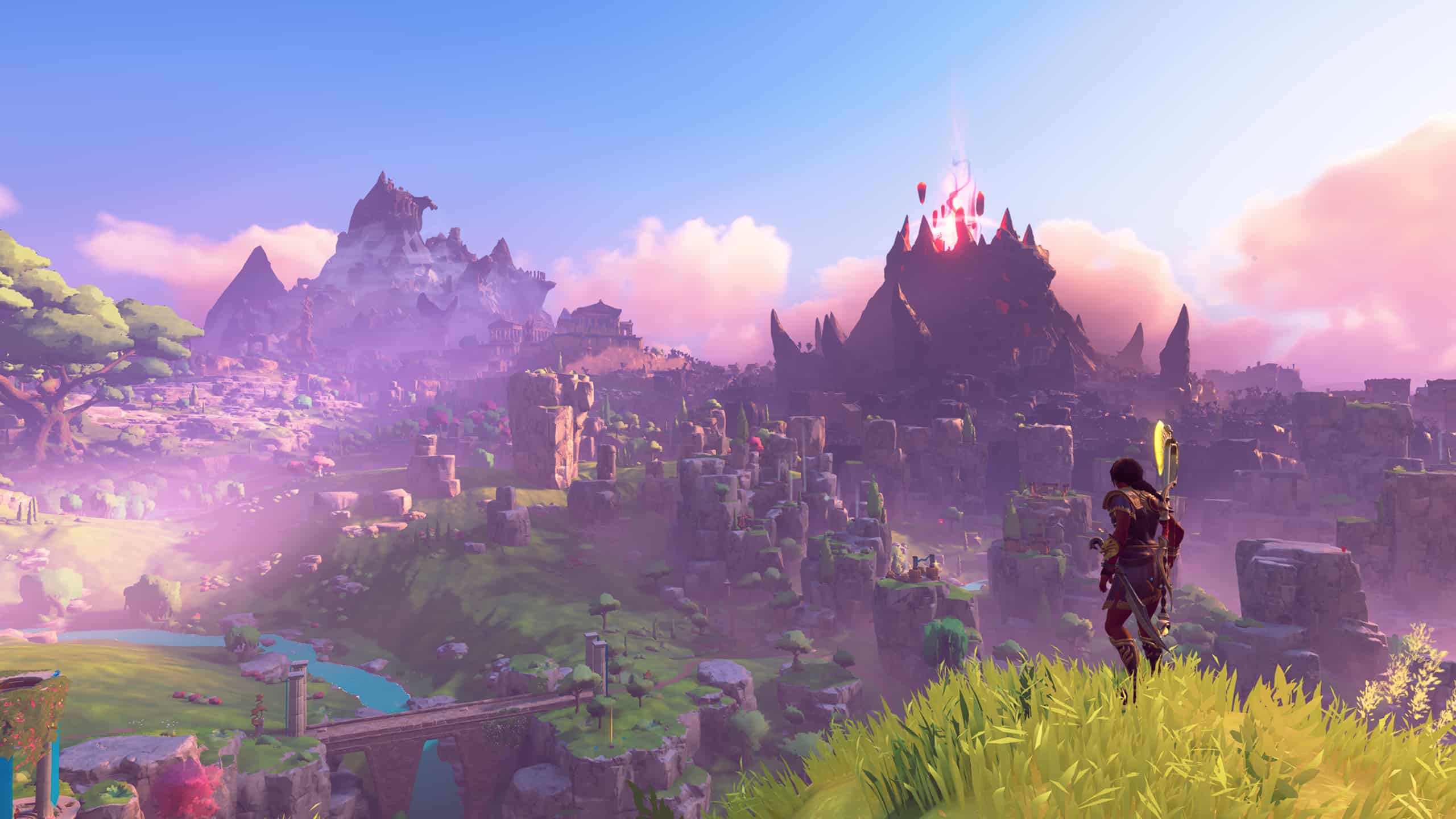
Don’t be fooled by the art style, though. Despite having simpler, more stylised textures than the likes of Watch Dogs and Assassin’s Creed, Immortals is quite demanding. There are some nice shader effects, reflections, and other high-end details you might not expect from a game with this kind of vibrant cartoon aesthetic. I managed to maintain a steady 60fps at 1440p with an Intel i7-9700K and an RTX 2080 Super, but even with this setup I did experience some distracting stutter when I was looking at a really dense vista.
Immortals is easy to like. It has an infectious energy, a great sense of humour, and a world that is full of colour and life. I just wish the mechanical stuff underpinning everything was more fine-tuned. The unsatisfying, weightless character movement is a real letdown, because there’s no getting away from it. This is a game where you’re constantly running, flying, climbing, and riding on horseback. But its unique take on Greek mythology, memorable characters, and fun quests do their best to make up for it, even if it doesn’t always pull it off.
Read our review policy
This is a fun, vibrant open world game with a great sense of humour. I just wish it felt nicer to play.





More Stories
Firefighting Simulator – The Squad review — Through the fire and the shame
Maid of Sker review — Death in the slow lane
PHOGS! review – It’s a dog-help-dog world out there